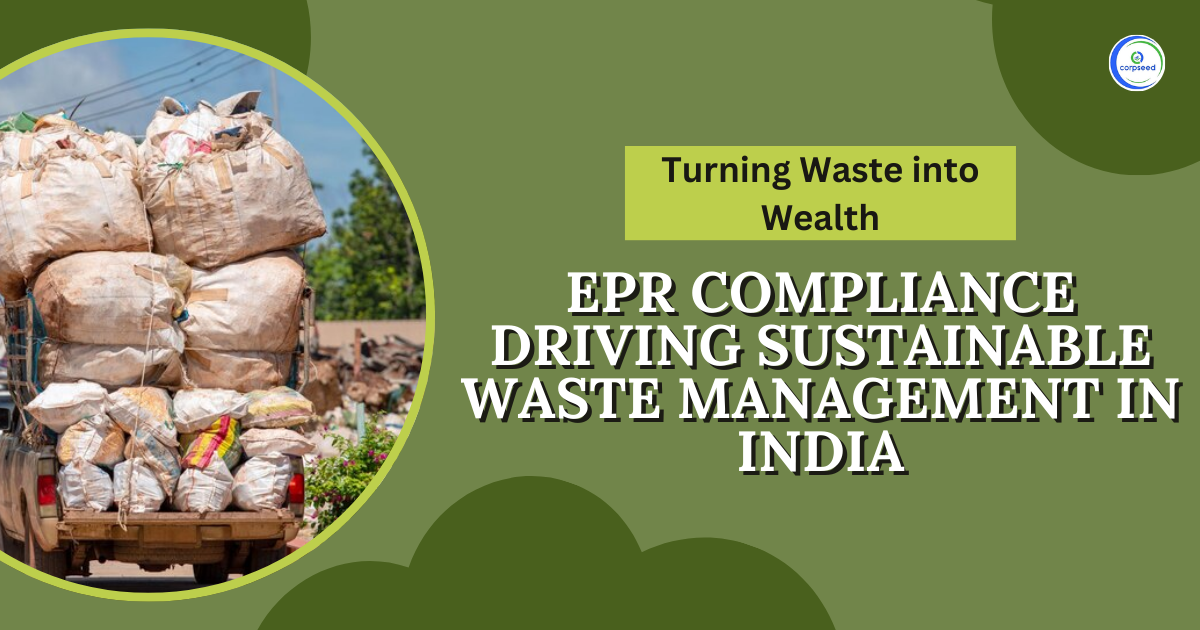India’s electronic waste is growing faster than ever, from smartphones to home appliances, every gadget has a marking end-of-life clock. To keep this increasing pile in check, the government has revised the EPR Authorization Rules for electronic waste. These amendments aim to stiffen compliance, ensure transparency, and make manufacturers more responsible for their items after use.
Table of Contents
What Is EPR Authorization Under E-Waste Management Rules?
EPR Authorization is an official approval issued by the Central Pollution Control Board (CPCB). It offers producers, importers, and brand owners the legal approval to handle electronic waste generated from their products, right from collection to safe recycling.
In short, if you make or import electronics, you must take care of what happens when those items stop working or are discarded. Whether it’s a phone, a washing machine, or a television, the producer is accountable for ensuring the waste ends up in safe hands.
The key purpose behind this rule is to reduce pollution and promote a circular economy, where materials are reused and not left to harm the environment.
Understanding the Latest Amendment in EPR Authorization for E-Waste
The E-Waste Management Rules 2025 amendment has been made to make the entire system more transparent and practical. It focuses on accountability, traceability, and digital monitoring.
A new CPCB-managed digital platform will now track how waste is collected, recycled, and disposed of. This makes it harder to fake data and easier to maintain genuine records.
The amendment also widens the meaning of “producer.” Now, even online sellers and e-commerce marketplaces fall under EPR rules, meaning they too must manage their share of e-waste responsibly.
Generally, the amendment promotes eco-friendly recycling and aims to stop illegal dumping in landfills, taking India a step closer to a sustainable and cleaner e-waste system.
--------------Blog Contact Form-------------
Key Changes Introduced in the New EPR Amendment
The EPR Amendment 2025 has direct implications for all stakeholders engaged in electronic goods, producers, importers, recyclers, and even consumers.
- Revised EPR Targets: Producers now have yearly collection and recycling targets on the basis of the type and volume of products sold.
- Online EPR Portal: The CPCB has launched a single online platform for registration, authorization, and compliance. Less paperwork, more transparency.
- EPR Credit Mechanism: Producers can now buy or trade EPR credits from approved recyclers, giving recyclers a fair incentive to process more waste.
- Third-Party Auditing: Regular independent audits will verify the accuracy of data submitted by companies, keeping reporting honest and reliable.
- Inclusion of Refurbishers: Refurbishers are now officially acknowledged under the rules, encouraging device reuse and minimizing recycling pressure.
- Penalties for Non-Compliance: Any company found violating EPR standards could face strict action from fines to suspension or cancellation of approval.
Impact of EPR Amendment on Producers and Importers
The 2025 amendment has direct implications for all stakeholders who are engaged in electronic goods, producers, importers, recyclers, and even consumers. The following are some of the key implications:
- For Producers: Manufacturers are required to register on the CPCB portal, set up collection systems, and ensure all waste goes to authorized recyclers. Non-compliance with the set rules could block their ability to sell products legally.
- For Importers: Importers need a valid EPR authorization before getting electronic goods into India. They must also keep clear records and take care of end-of-life disposal.
- For Recyclers: Only CPCB-approved recyclers can issue EPR credits. This ensures that recycling is done the correct way, not just on paper.
- For Consumers: Consumers benefit from better take-back systems and safer disposal options. Cleaner recycling means less pollution and a healthier environment.
Also Read: EPR Authorization Amendment: Step-by-Step Overview
How to get an EPR Certificate for E-waste?
What is E-waste and why is it Important?
E-Waste Management Certification for Electronics Manufacturing Plants: A Comprehensive Guide
How to Apply or Modify EPR Authorization under the New Rules
Applying for or modifying EPR authorization has become simpler and faster with the CPCB’s online filing system. Below is the step-by-step process:
- Online Registration: Register on the official CPCB EPR portal.
- Document Submission: Upload details like your business registration, product information, and waste management plan.
- EPR Plan Approval: Submit your collection and recycling plan for CPCB’s review.
- Issuance of EPR Certificate: Once approved, CPCB grants your EPR authorization certificate, valid for a fixed period.
- EPR Modification: Any modification in your product range or recycling methods requires updating your authorization online.
- Compliance Reporting: Producers must file regular reports demonstrating how much e-waste was collected and recycled. Missing reports may lead to penalties.
This online system has made the whole process simpler, quicker, more transparent, and fully aligned with India’s digital governance goals.
Conclusion
The EPR Authorization Amendment 2025 is a big step toward responsible e-waste management. It ensures that producers, importers, and recyclers all share the duty of keeping electronic waste out of landfills.
For businesses, this means more accountability, but also a real chance to prove commitment to sustainability. Following EPR norms doesn’t just keep companies compliant, it helps build trust, strengthens brand image, and protects the environment for the long run.
This portion of the site is for informational purposes only. The content is not legal advice. The statements and opinions are the expression of author, not corpseed, and have not been evaluated by corpseed for accuracy, completeness, or changes in the law.
BOOK A FREE CONSULTATION
Get help from an experienced legal adviser. Schedule your consultation at a time that works for you and it's absolutely FREE.
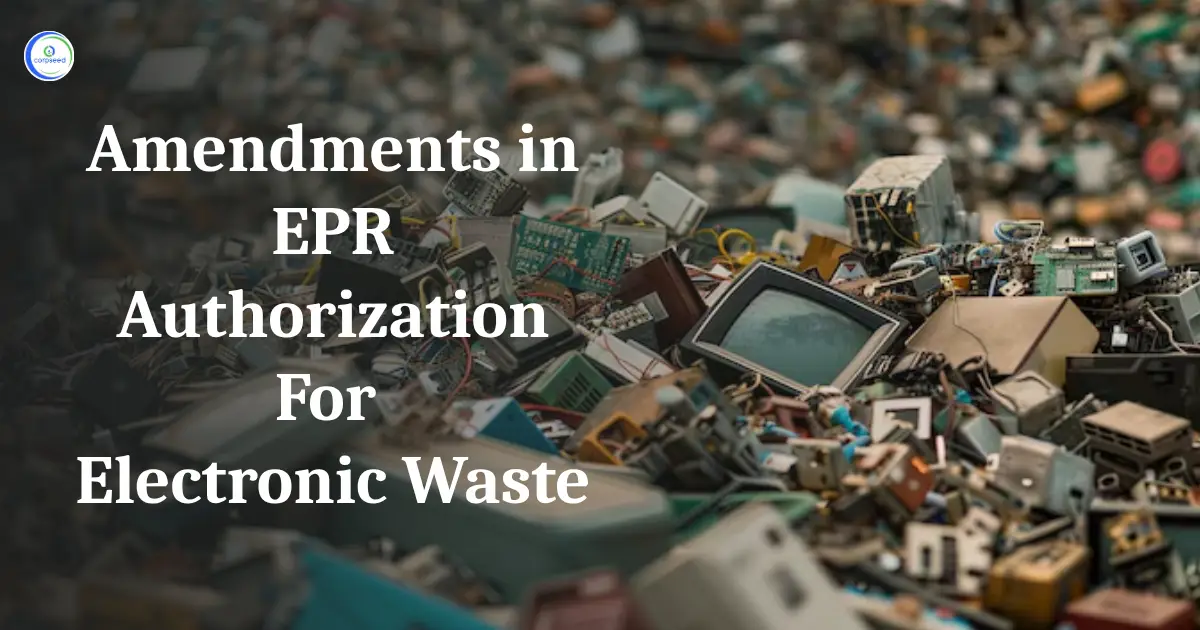

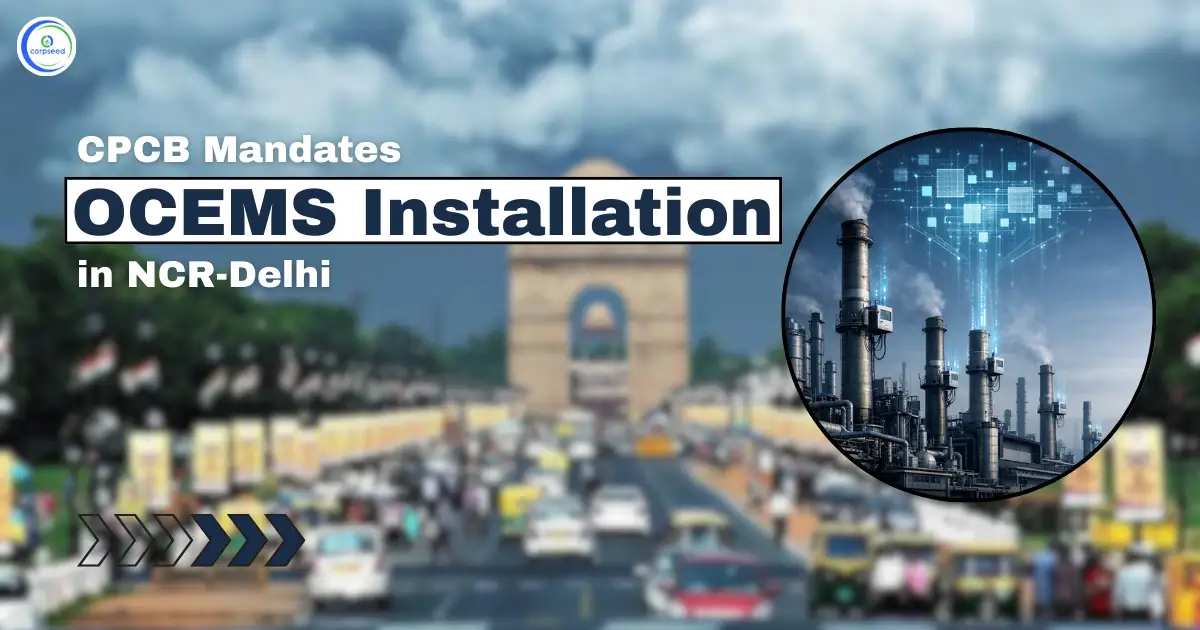
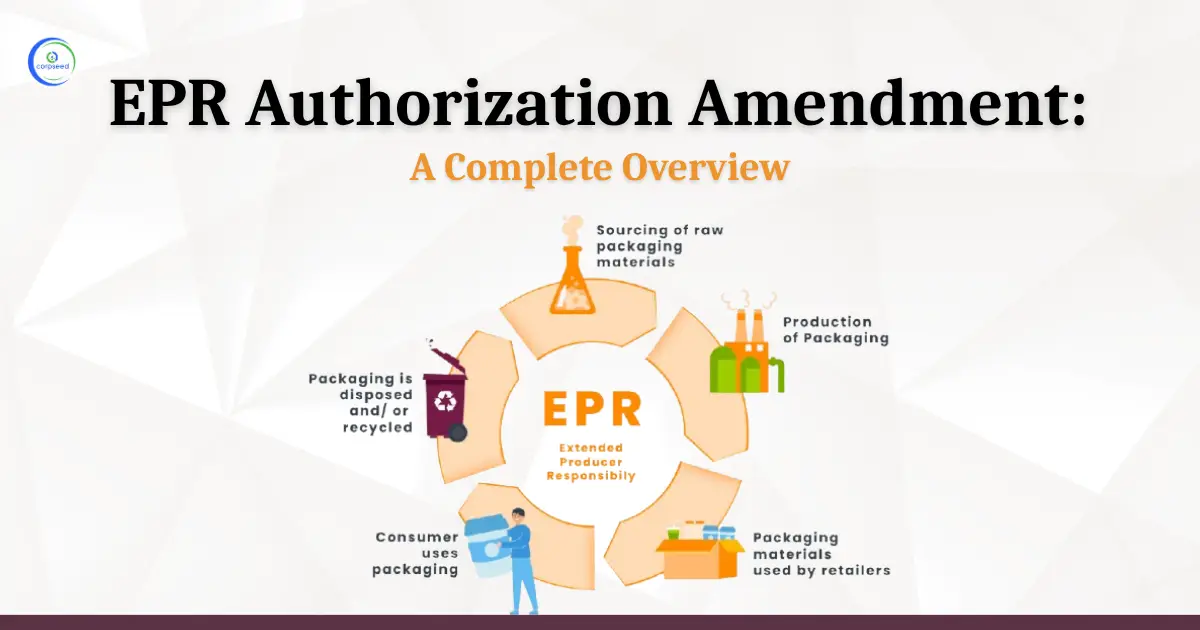
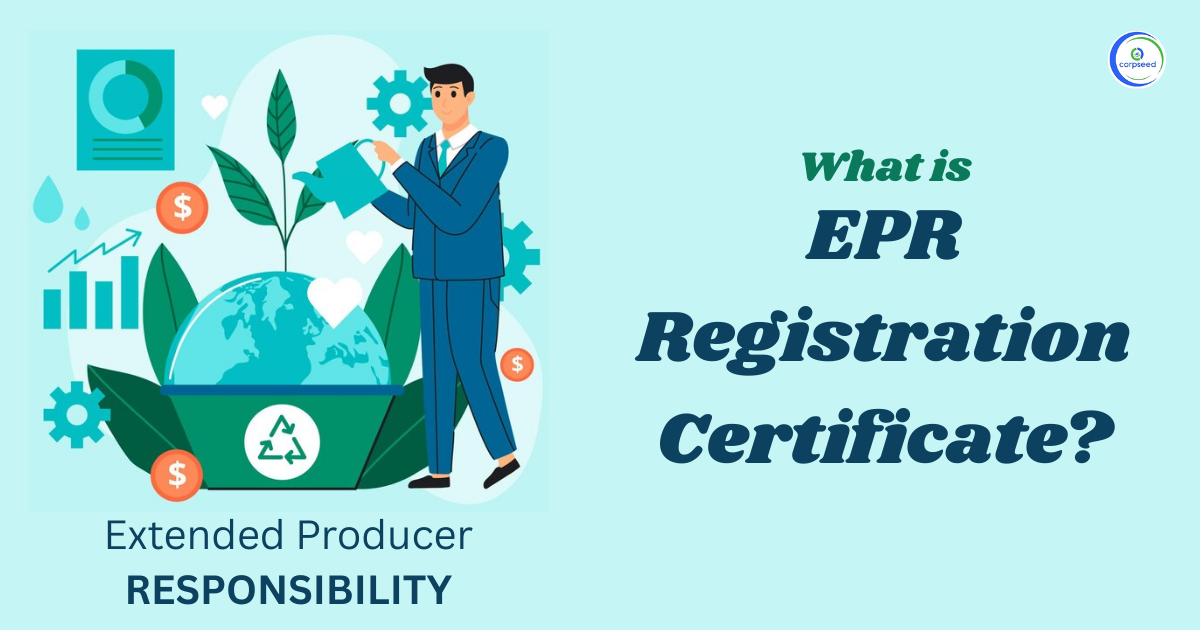
.webp)
